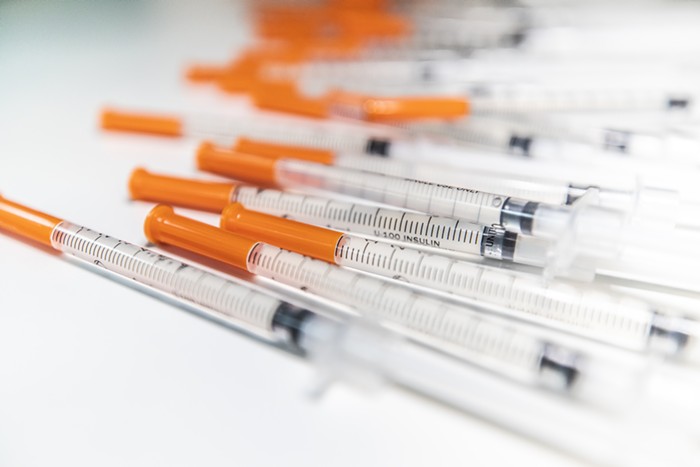This Microsite does not have a landing page.
Syringe Exchange Programs:
These resources include NC-specific and national practices and regulations for syringe exchange programs, as well as initiatives and locations in North Carolina. Communities may use these resources to access SEPs, or to guide their creation and implementation of SEPs in their area.
A Guide to Establishing Syringe Services Programs in Rural, At-Risk Areas (2017) PDF - This resource gives an overview of the benefits of syringe exchange in rural areas to reduce blood borne diseases, as well as best practices for establishing programs in rural areas.
Funding Syringe Exchange Programs - This website provides information on funding options for syringe exchange, including local government funds, nonprofits and foundations who provide supplies and financial support, and potential sources of governmental operations funding. It also provides budget considerations and guidance to identify reputable, consistent funders.
NCDHHS Active Syringe Exchange Programs in North Carolina - This website lists the active programs in NC by county, as well as their locations, hours, and contact information.
North Carolina Safer Syringe Initiative - This website provides legal information about how to establish and operate a syringe exchange program in North Carolina, including statutes that permit syringe exchange and NCDHHS regulations pertaining to them.
NC Safer Syringe Initiative Annual Report, 2018-2019 PDF - This report provides data and outcomes for the NC Safer Syringe Initiative for the 2018-2019 fiscal year, including a map of active programs, counties served, and support services.
Syringe Exchange Programs and Land Use Zoning: NC Local Government Law - This resource provides information on the local government zoning laws that regulate where and how syringe exchange programs can operate in North Carolina.
US DHHS Services Syringe Service Programs Webinar Series: This YouTube-based webinar series provides information on the public health benefits of syringe exchange nationally, as well as the roles of governments and community-based organizations in partnerships to establish and fund programs.
- A Critical Public Health Intervention (August 2019)
- The Essential Roles of Non-Governmental and Community-Based Organizations (January 2020)
- State & Local Perspectives on the Role of Policy, Funding, & Partnership (September 2019)



